Boost Your Site's Search Engine Rankings With These 16 Tips
Get your site to the top of search engine results with our 16 expert tips. Learn how to optimize your site, increase visibility & drive more traffic.

When it comes to improving a site's search engine rankings, one of the most crucial aspects is Search Engine Optimization (SEO). SEO is the process of optimizing your website for Google's algorithms to drive higher web traffic and improve your overall visibility on the Internet.
As the Internet evolves, so does the way we use it. More and more people are using search engines to find the products and services they need. As a result, you need to optimize your website for search engines so that you can stay ahead of the competition.
In this blog post, we will explore some tips for optimizing your site for search engines. From keyword research to site structure and more, read on for some helpful tips that can help you rise to the top of the search engine rankings.
Why is optimizing your site for search engines so crucial?
There are many benefits of optimizing your website for search engines. For one, it can help you attract more visitors to your site. And since more visitors usually lead to more sales, this can eventually lead to growing your business.
Additionally, optimizing your site can also help you build trust and credibility with potential customers. After all, if your site appears at the top of the search results for relevant keywords, it will give users the impression that you are a credible and trustworthy business.
And lastly, optimizing your site can also enable you to improve your brand awareness and visibility.
What are the 16 most effective tips for improving your website for search engines?
On-page Elements
Do keyword research
Keyword research is the process of discovering, evaluating, and prioritizing terms or phrases associated with a specific target keyword for on-page optimization.
When it comes to on-page optimization, keyword research is essential. Without keyword research, you will not be able to identify the keywords your target audience is using to search for your product or service.
And without these keywords, your website will not be able to rank in the search engines.
There are several ways to perform keyword research. However, one of the most popular methods is to use keyword research tools like Google Ads Keyword Planner or Moz Keyword Explorer. There are also several paid and free keyword research tools you can use to achieve this.
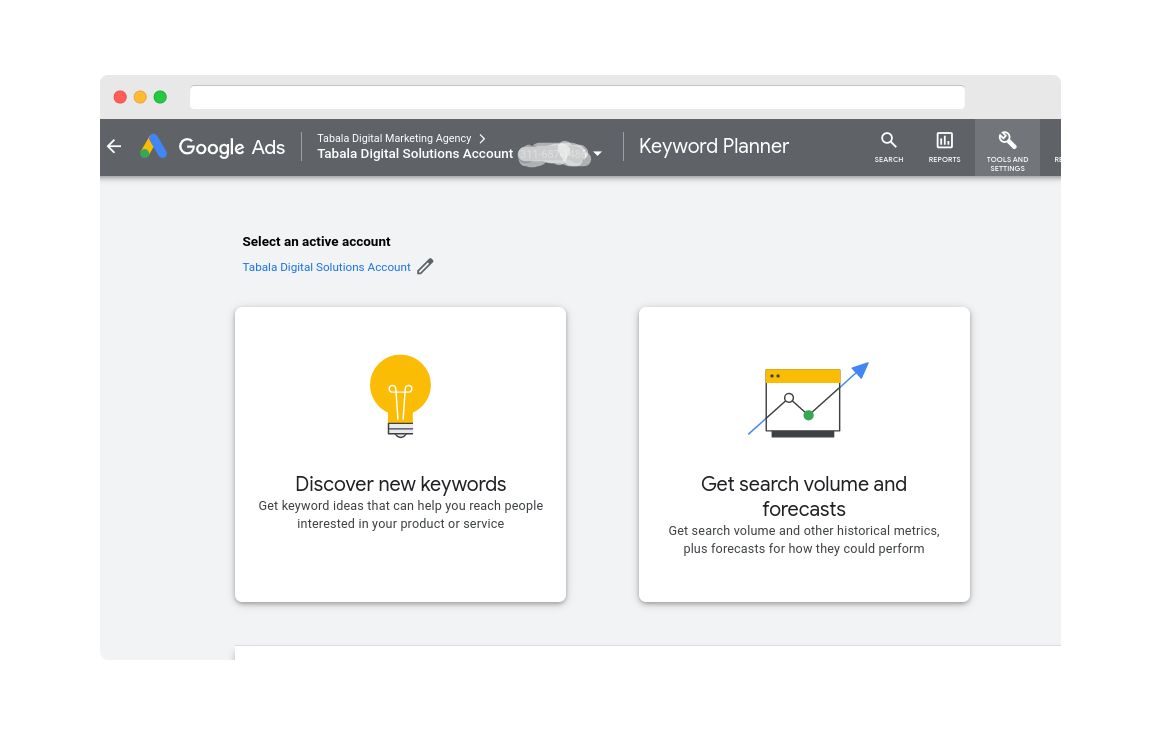 Use keywords throughout your website
Use keywords throughout your website
Once you have identified the keywords you want to target, you need to incorporate them into your website. You can do this by including them in your page titles, meta tags, header tags, and throughout your website content.
By including keywords in your website content, you can improve your website's visibility on search engine results pages (SERPs). Also, by using keywords, you can attract more visitors to your website and improve your overall web traffic.
When choosing keywords to use on your website, you must choose keywords that are relevant to the content of your website. You should also consider the search volume and competition for each keyword.
Once you have selected a set of keywords, you can start integrating them into the content of your website.
Maximize Your Online Presence with Our Digital Marketing Agency
-
SEO: Unlock more SEO traffic and see real results with our expert optimization services.
-
Content marketing: Attract and retain customers with high-quality, engaging content that drives traffic and generates leads.
-
Social media marketing: Our team creates epic content that will get shared, get links, and attract traffic on social media platforms.
-
Google Ads: Effective paid strategies with clear ROI. Let our team help you get the most out of your ad spend.
-
Email marketing: Connect with your audience and drive conversions with targeted email campaigns.
-
Web design and development: A visually appealing and user-friendly website is key to attracting and retaining visitors. Our team can help you create a website that converts.
Of course, you should not overdo it with the keywords. Cramming your content with too many keywords will not only scare away potential customers but will also cause you to be penalized by search engines. The key is to find a balance - use enough keywords to get noticed, but not so many that it hurts your site.
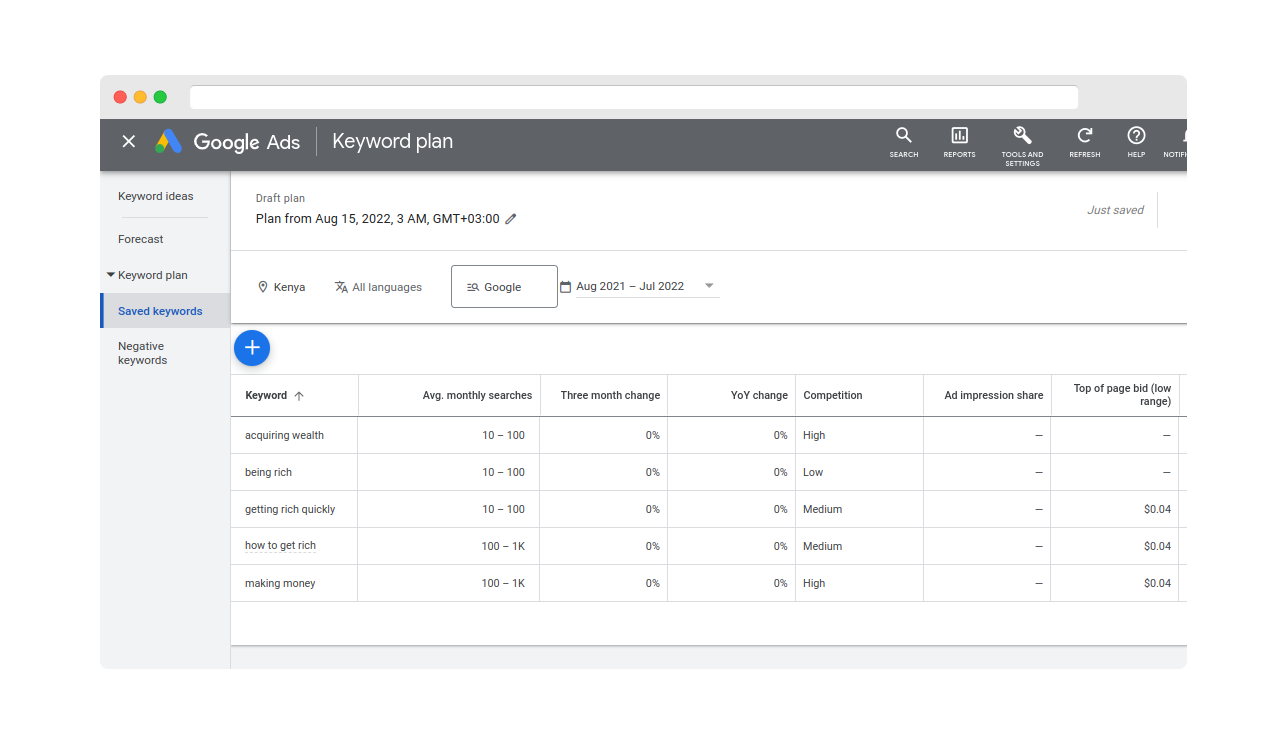
Optimize the title, description, and meta tags of your website
The title and description of your website are two of the most influential SEO elements on the page. These elements show up in search engine results pages (SERPs) and play a crucial role in helping users find your website.
Optimizing your title and description can help improve your click-through rate (CTR), which is an important ranking factor for SEO. In addition, your meta tags are also essential for on-page optimization.
Meta tags provide search engines with information about your website and can improve your website's visibility.
There are a few things you can do to optimize your title and description. First, make sure your title is short, clear, and to the point.
Visitors should be able to understand what your website is about just by reading the title. Second, use keywords in your title and description.
This will get your website displayed in relevant search results. Finally, make sure your description is interesting and engaging. Convince people that your website is worth visiting and you will have more visitors in no time.
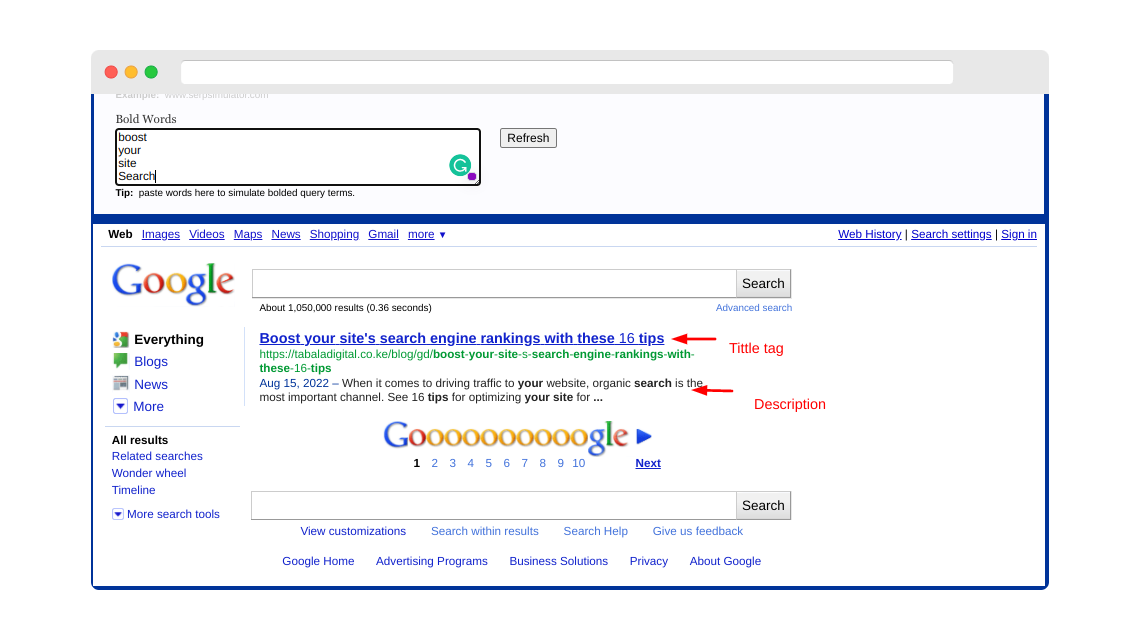
Optimize the header tags of your website
If you want your website to rank well in search engine results, you must optimize your header tags. Heading tags are used to indicate the hierarchy of your website's content, and they help search engines understand the structure of your page.
There are six heading tags, H1 through H6, and each has a different meaning. The H1 tag is the most significant and should be used for the title of your website or the main heading.
The H2 tag is meant for subheadings, and H3 through H6 are for less prominent headings.
To do this, make sure to include relevant keywords in your H1 and H2 tags, and try to keep your headings short.
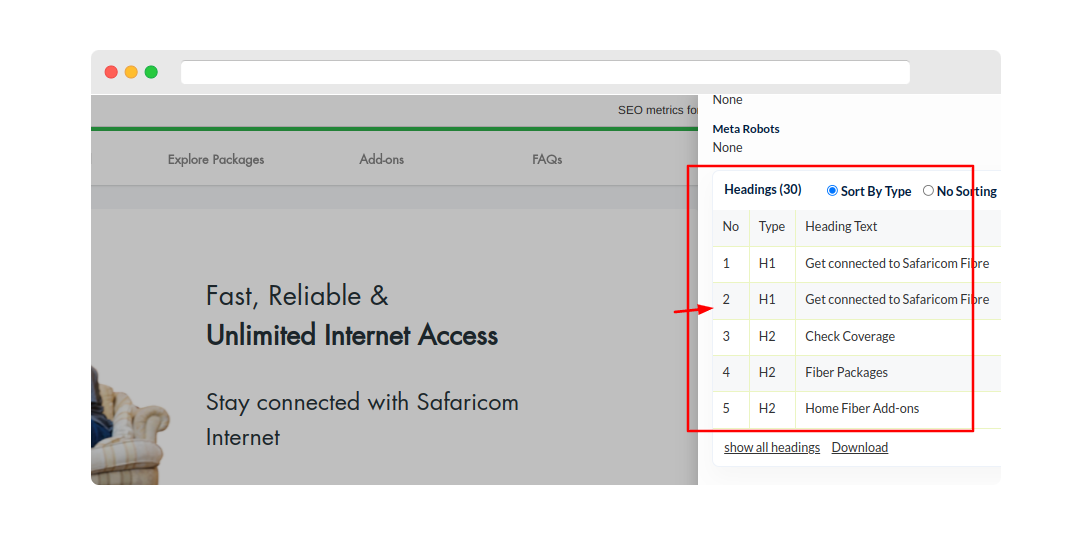
Create high-quality content
Quality content is essential to the success of your website or blog. With well-written, informative content, your website will attract and retain readers. In addition, your content must be well-organized and error-free to leave a positive impression on visitors.
To do this, you must first understand your target audience and what they are looking for. Then you can start creating captivating and engaging content that will keep your readers coming back for more.
Be sure to edit and proofread your work before publishing, and do not forget to regularly update your website with new content.
Optimize your website images
Images are an essential part of any website. They can help break up the text, add visual interest, and make your site more engaging. However, if not properly optimized, images can also slow down your website and make it difficult for visitors to find the information they need.
It is, therefore, important to optimize your images before you publish them on your website. This will ensure that your images are in the right size, format, and quality. It will also help you avoid potential problems such as slow loading times and corrupted images.
Not sure how to optimize your images? Here are a few tips:
-
Use the right file format.
-
Resize your images to the appropriate size for your website.
-
Compress your images to reduce the file size.
Optimize your website for mobile devices
In today's mobile world, it's more important than ever that your website is optimized for handheld devices. As more and more people access the internet through their smartphones and tablets, your website needs to be designed for these smaller screens. Mobile users have different needs and expectations than desktop users.
Therefore, you need to make some adjustments to your website if you want to provide them with a pleasant experience.
There are a few things you can do to make sure your website is mobile-friendly. Below are some tips on how to optimize your website for mobile users:
-
Make sure your website is responsive, meaning that it adapts to any screen size.
-
Use large, easy-to-read font sizes.
-
Optimize your images for mobile devices.
-
Include a mobile-friendly navigation menu.
By following these tips, you can ensure that your website provides a smooth experience for all users, regardless of how they access it.
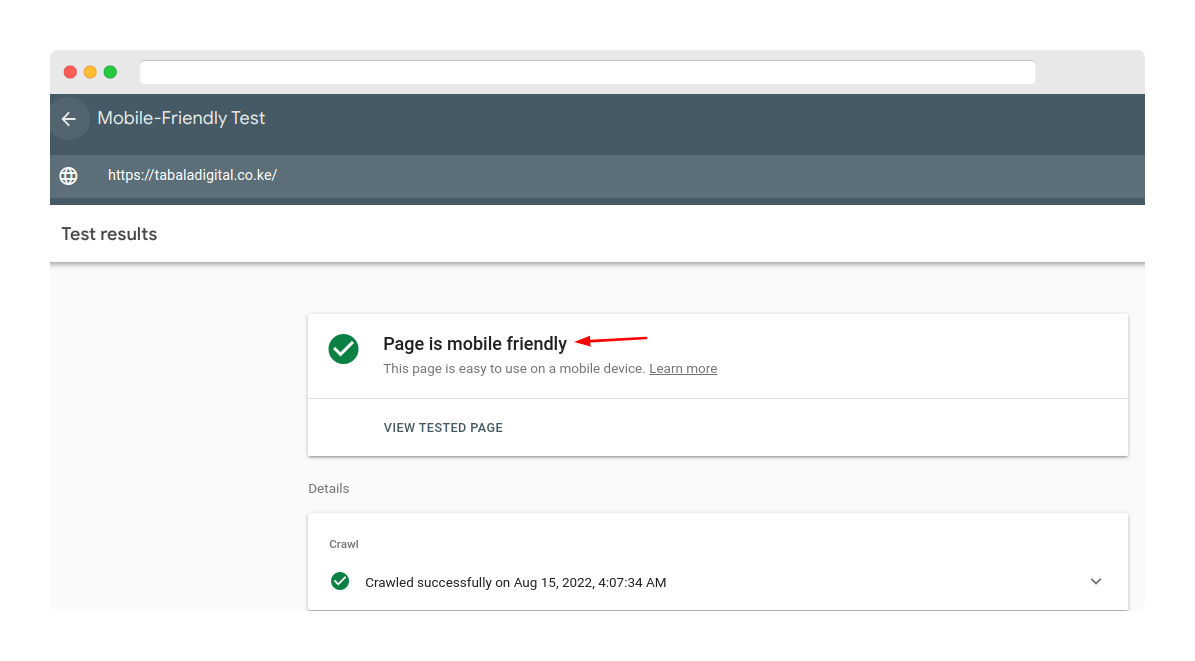
Optimize the content of your website
Your website content is an important part of your online presence - it helps you attract visitors and convert them into leads and customers. But for your content to be effective, it needs to be optimized.
There are some important things you can do to optimize your website's content, including:
-
Make sure your content is well-written and free of errors.
-
Structure your content in an easy-to-read format.
-
Use keyword-rich titles and descriptions.
-
Write compelling and original content.
-
Use relevant and engaging images.
-
Use correct grammar and punctuation.
-
Update your content regularly.
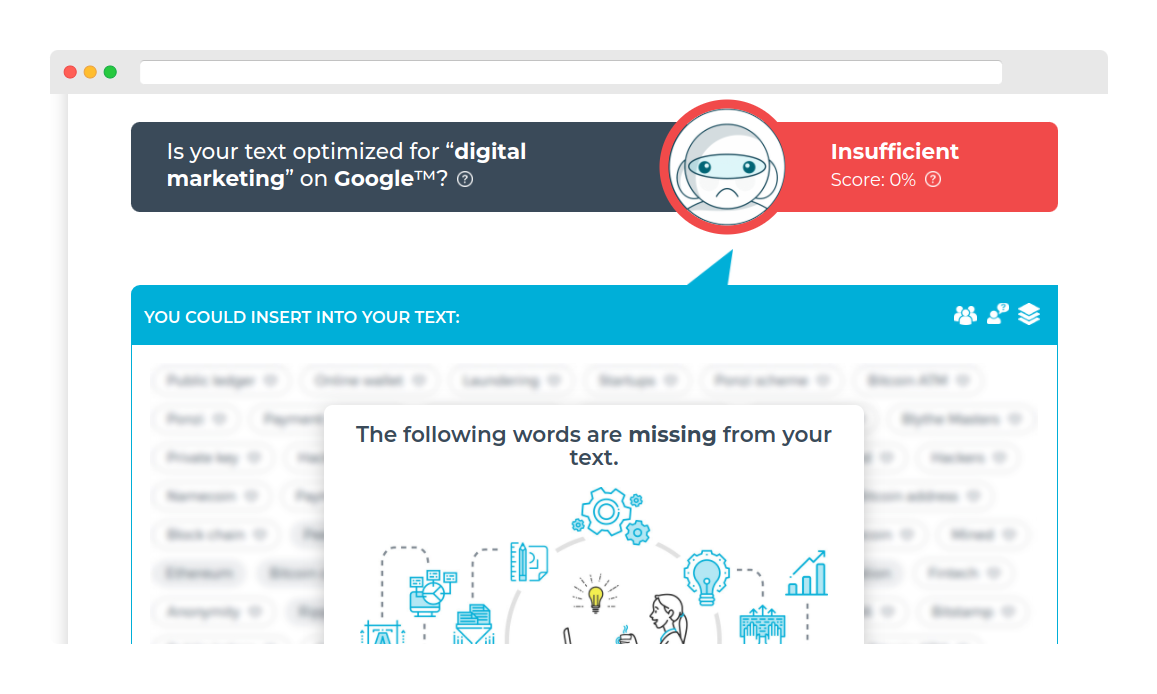
Structure the navigation of your website
One of the most important aspects of an effective website design is well-structured navigation. This means that your website visitors should be able to find their way around easily, no matter where they are on your website.
There are several ways you can do this. The most common method is to have the main navigation menu at the top of your website, with subpages grouped under each main topic.
Another popular method is page navigation which can be either fixed or hidden. Whichever method you choose, make sure your navigation is easy to understand and user-friendly.
If you have a lot of content on your site, you should also set up a search function to make it easier for your visitors to find what they are looking for.
Whatever method you choose, make sure your navigation is well-structured, clear, and easy to use.
Optimize your website for speed
The loading speed of your website is crucial for several reasons. First, it is a ranking factor for search engines. Google, in particular, has stated that it takes page speed into account when ranking websites.
This means that if your website is slow, it could hurt your search engine ranking. Secondly, the speed of a website is crucial to its usability. If your website takes too long to load, users are likely to get frustrated and leave, which will discourage them from returning to your website.
Finally, website speed is also critical for conversions. If users have to wait too long for your website to load, they are less likely to make a purchase or sign up for your newsletter.
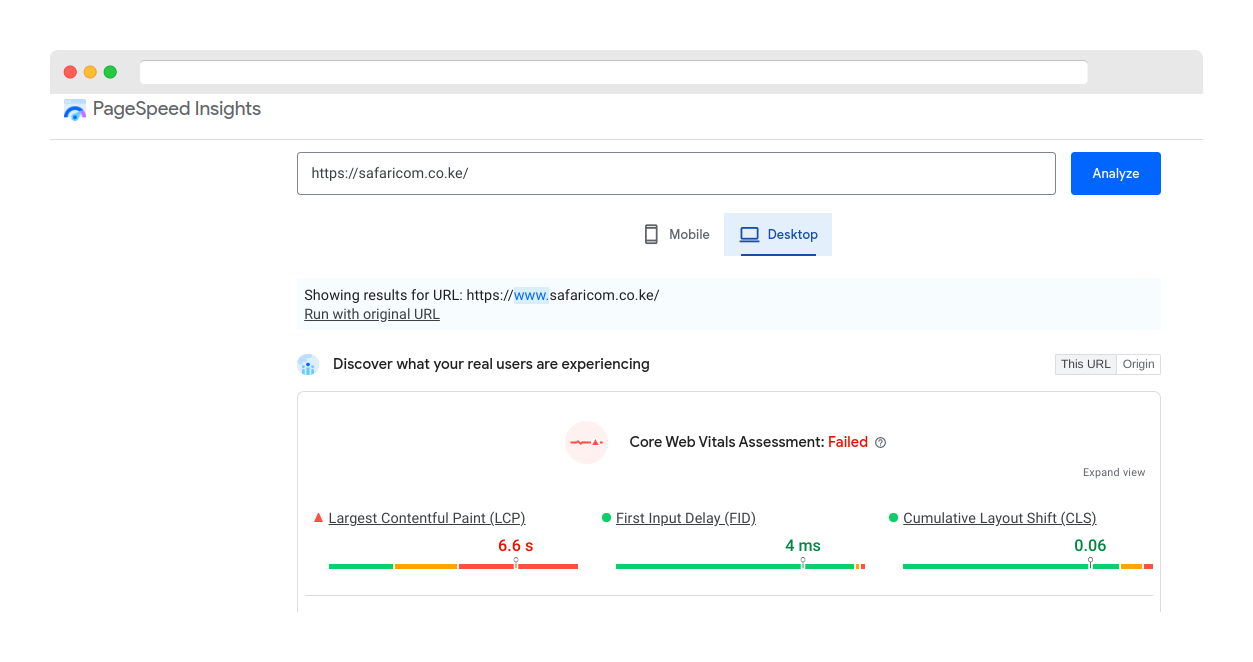
Off-page Elements
Submit your website to Google
One of the first steps to making your website visible to search engines like Google or Bing is to submit it. Google is constantly crawling the internet using an internet bot called "spiders", looking for new websites to add to their index.
By submitting your website to search engines, you instruct the spider to crawl your website and add it to the search engine's database.
There are two main methods to submit your website to search engines: manual submission and sitemap submission. In manual submission, you enter the URL of your website on the search engine's website.
For example, the submission page for Google is this. Once you are on the URL Inspection tool, all you need to do is enter the URL of your website and click the "Submit" button.
Submitting a sitemap, on the other hand, requires you to submit a sitemap through Google Search Console.
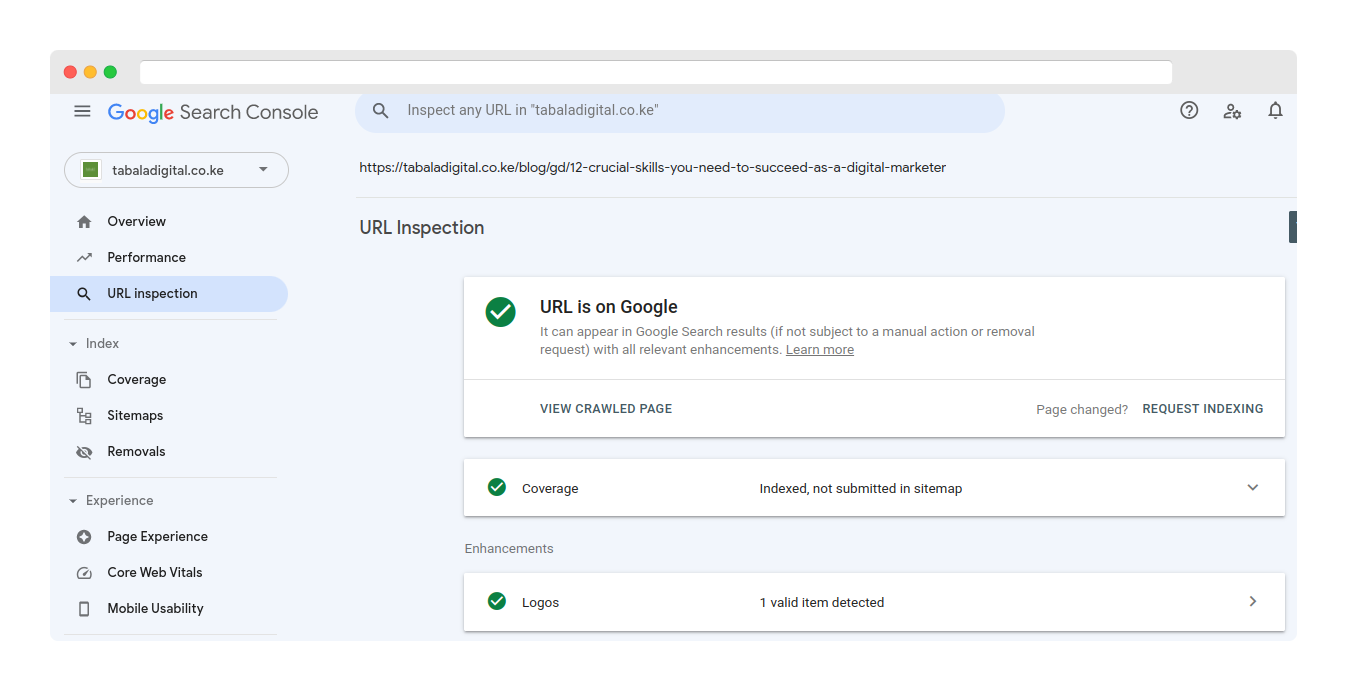
Create a sitemap and send it to Google
A sitemap is a file where you list all the URLs of a website. This is helpful for search engines because it gives them a map of all the content on your website and helps them index it better.
To create a sitemap, you can use a tool like XML Sitemaps. Here is how:
-
Navigate to the sitemap generator tool.
-
Enter the URL of your website.
-
Click "Start".
-
Download the sitemap file.
-
Upload the sitemap file to the root directory of your website.
-
Submit your sitemap to Google via Google Search Console.
Creating a sitemap is a quick and easy way to improve how Google indexes your website. If you have a large website, it is especially helpful to submit a sitemap. This is because it can be difficult for Google to find and index all of your pages at once.
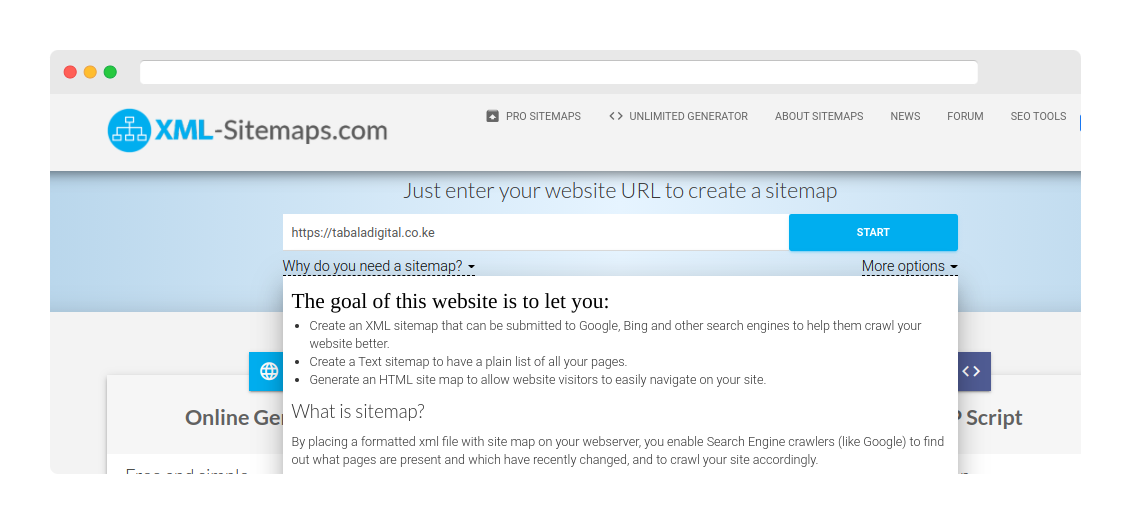
Promote your content
The Internet is a vast and ever-changing landscape, and it can be difficult to make yourself heard above the noise. But if you have something valuable to say, promoting your content is a great way to reach a larger audience and spread your message.
There are several ways to get the word out about your content, and the most effective approach depends on your goals and audience. In general, however, there are a few key ways to promote your content and ensure it reaches as many people as possible.
Here are a few ideas to get you started:
-
Use social media: share your content on social media platforms such as Twitter, Facebook, and LinkedIn.
-
Use email marketing: Send an email to your subscribers promoting your latest article or blog post.
-
Utilize paid advertising: Place ads on relevant websites and online platforms to reach your target audience.
-
Use native advertising: Promote your content on platforms like Tuko and The Standard Digital.
-
Write guest posts on other websites and link to your website or blog.
-
Submit your articles to press directories and include a link to your website.
No matter how you promote your content, make sure you do it consistently and with a plan in mind. If you take the time to promote your content, you are more likely to reach your target audience and achieve your business goals.
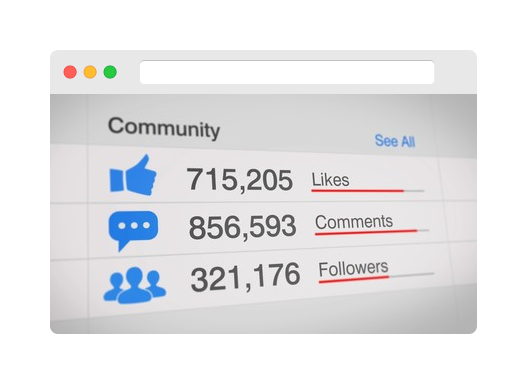
Build quality links
For your website to rank well in search engine results, you must have quality links pointing to your website. Link building is the process of acquiring links from other websites. The more high-quality links pointing to your website, the higher your website will rank in search results.
There are many ways to build links to your website:
-
Contact other website owners and ask them to link to your website.
-
Create helpful and informative content that other websites will want to link to.
-
Submit your website to directories.
-
Use social media.
-
Participate in link directories and forums to spread the link of your website.
Whichever method you choose, make sure you only build links from high-quality websites. Linking to low-quality websites can hurt your ranking.
Building links with high Domain Ratings/Domain Authority (DR/DA) takes time and effort, but it's worth it if you want your website to rank better in search engine results.
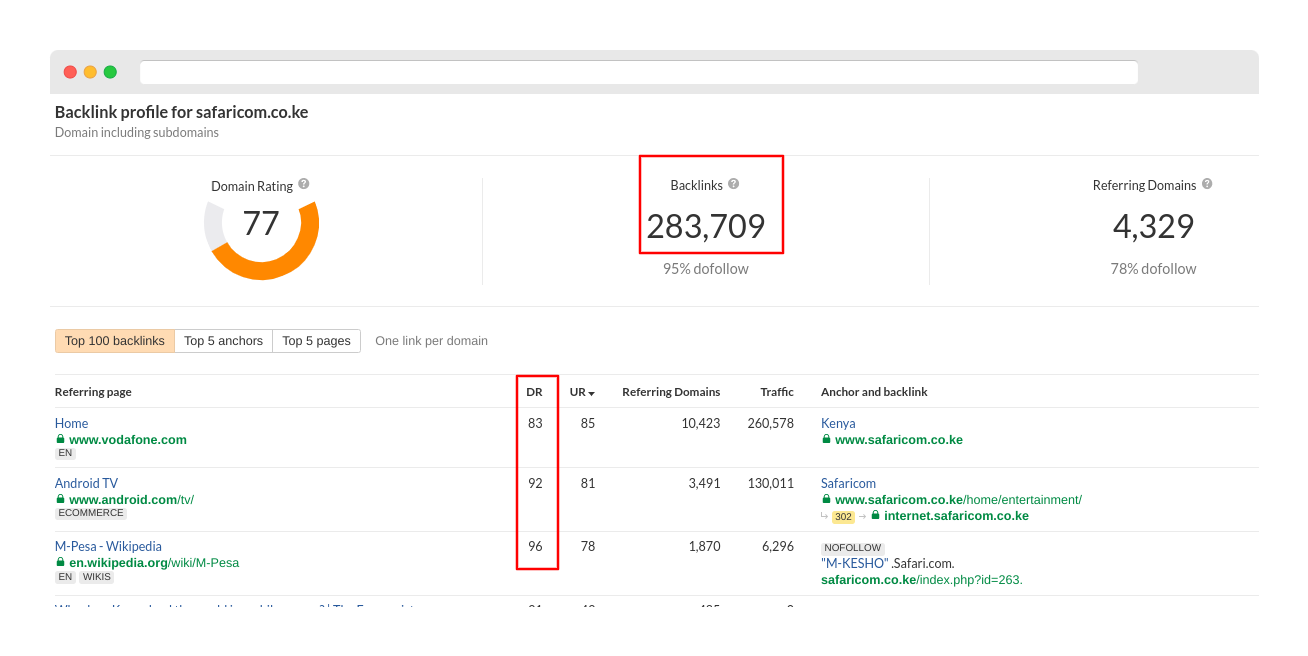
If you are not sure how to build links, contact our SEO specialists. We will help you develop a link-building strategy that will improve your website's ranking.
Use social media
With over 4.5 billion active users on social media, it's more important than ever to take advantage of this powerful marketing tool. By creating engaging content and actively participating in online discussions, you can build relationships with potential and current customers, increase brand awareness, and drive traffic to your website.
Social media can also be used to improve search engine optimization and generate leads. By sharing your content on social media, you increase the likelihood that it will be seen by potential customers looking for information about your business.
If you are not using social media to promote your business, you are missing out on a huge opportunity. However, it's not enough to simply create a social media account and start posting. You need to use your social media strategically if you want to see results.
Monitor your SEO progress
If you are serious about SEO, you need to monitor your progress regularly. That means tracking your rankings, your traffic, and your conversions. Only then can you see how your SEO efforts are paying off and make adjustments as needed.
There are several different tools you can use to track your SEO progress. Some are free, while others are paid. Whatever you choose, make sure you are comfortable with it and that you are getting all the data you need.
Once you start tracking your progress, you'll be able to see what's working and what's not. From there, you can make the necessary changes to your SEO strategy to ensure you are getting the most out of your efforts.
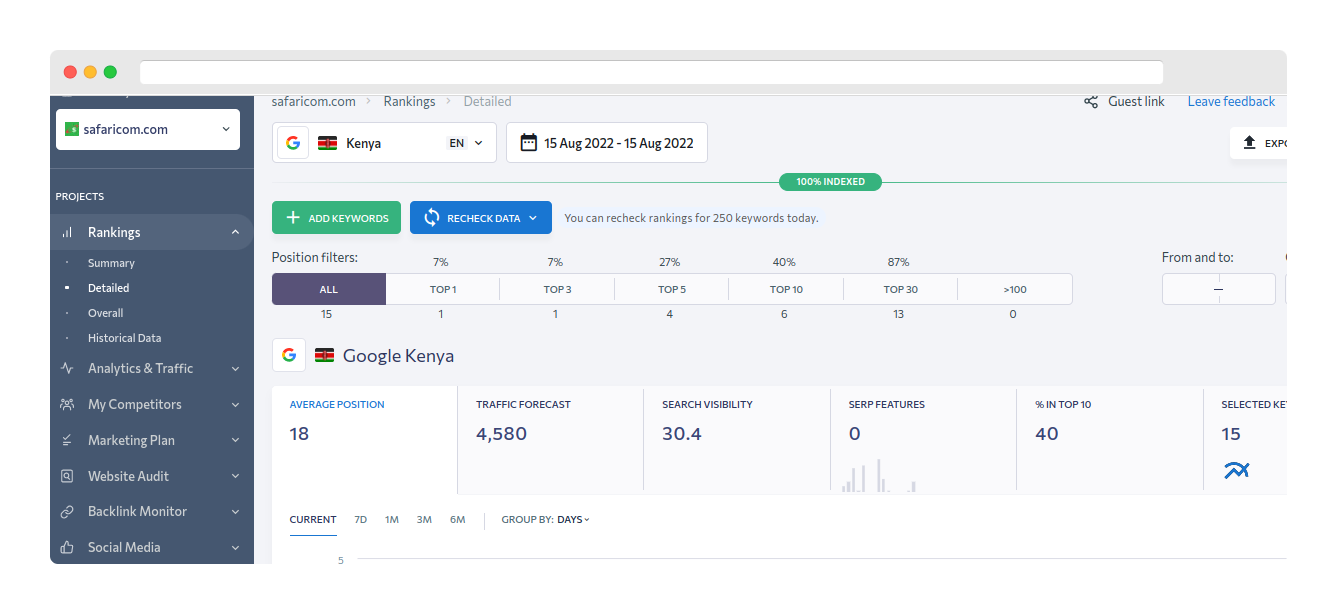
Final thoughts
SEO is a complex and ever-changing field, but there are a few basic things you can do to optimize your website for search engines. First, make sure your website is well-structured and easy to navigate.
Second, use keyword-rich titles and descriptions to significantly improve your website's visibility.
Third, use social media and other online tools to get the word out about your website. And finally, SEO is worth the effort because it can help you attract more visitors to your website.
The tips in this article will help you get on the right track. If you need help with your SEO efforts, do not hesitate to contact us, we are one of the leading SEO agencies in Kenya.

Strategist Profile
Abala Tom
Digital systems strategist specializing in high-performance SEO, Google Ads, and conversion optimization. Mission: to replace marketing 'guesswork' with predictable revenue systems.